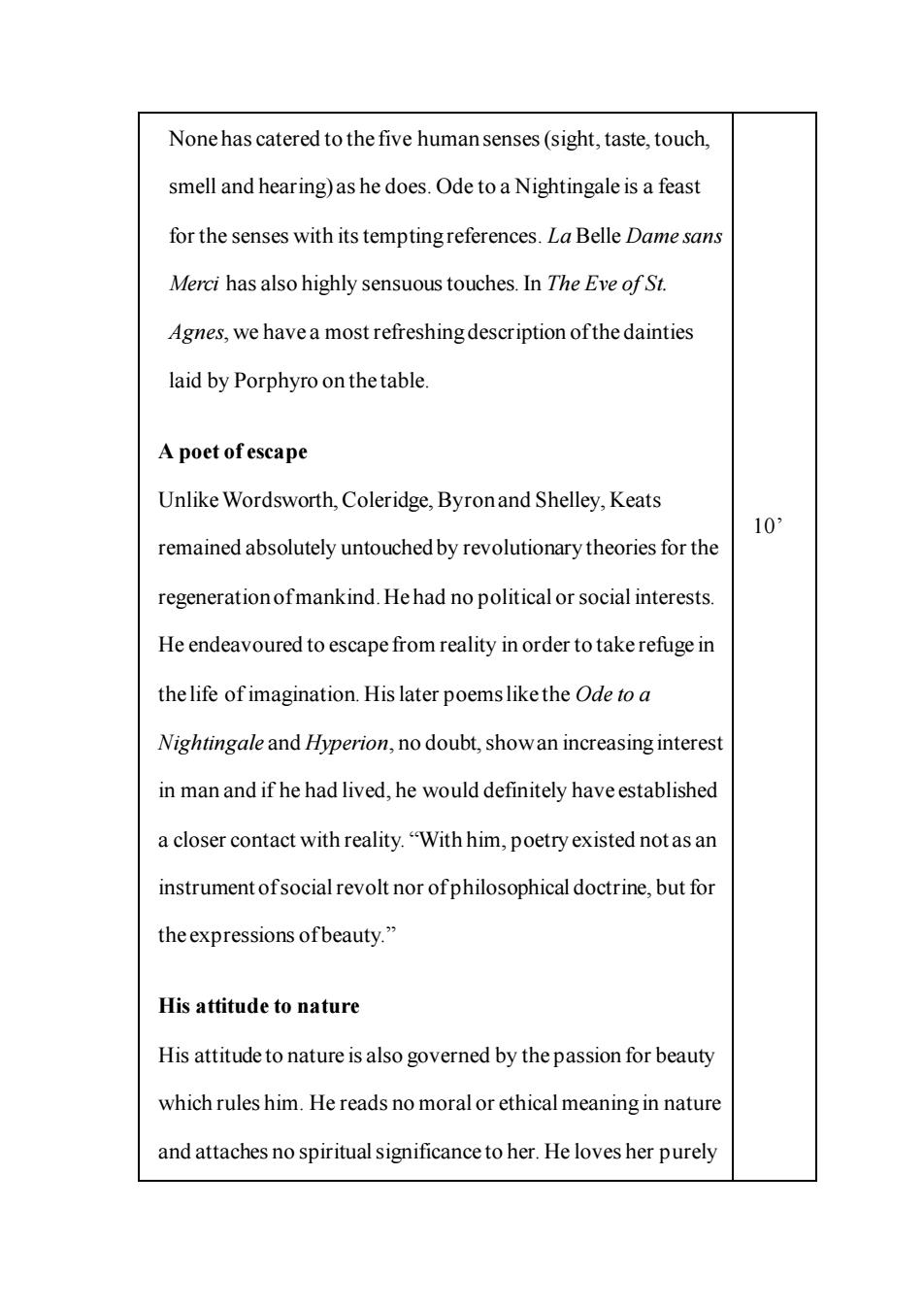正在加载图片...

None has catered to the five humansenses(sight,taste,touch, smell and hearing)as he does.Ode to a Nightingale is a feast for the senses with its tempting references.La Belle Dame sans Merci has also highly sensuous touches.In The Eve of.St. Agnes,we have a most refreshing description ofthe dainties laid by Porphyro on thetable. A poet of escape Unlike Wordsworth,Coleridge,Byronand Shelley,Keats 10 remained absolutely untouched by revolutionary theories for the regenerationofmankind.Hehad no political or social interests He endeavoured to escape from reality in order to take refuge in the life of imagination.His later poemslikethe Ode toa Nightingale and Hyperion,no doubt,show an increasing interest in man and if he had lived,he would definitely have established a closer contact with reality."With him,poetry existed not as an instrument ofsocial revolt nor ofphilosophical doctrine,but for theexpressions ofbeauty." His attitude to nature His attitude to nature is also governed by the passion for beauty which rules him.He reads no moral or ethical meaning in nature and attaches no spiritual significance to her.He loves her purely None has catered to the five human senses (sight, taste, touch, smell and hearing) as he does. Ode to a Nightingale is a feast for the senses with its tempting references. La Belle Dame sans Merci has also highly sensuous touches. In The Eve of St. Agnes, we have a most refreshing description of the dainties laid by Porphyro on the table. A poet of escape Unlike Wordsworth, Coleridge, Byron and Shelley, Keats remained absolutely untouched by revolutionary theories for the regeneration of mankind. He had no political or social interests. He endeavoured to escape from reality in order to take refuge in the life of imagination. His later poems like the Ode to a Nightingale and Hyperion, no doubt, show an increasing interest in man and if he had lived, he would definitely have established a closer contact with reality. “With him, poetry existed not as an instrument of social revolt nor of philosophical doctrine, but for the expressions of beauty.” His attitude to nature His attitude to nature is also governed by the passion for beauty which rules him. He reads no moral or ethical meaning in nature and attaches no spiritual significance to her. He loves her purely 10’